La Ronde - The Max Ophuls Collection
This is another fine example of Max Ophul's genius for fluid camerawork and elaborately choreographed tracking sequences. These were the days when a Director claiming that you could 'fix it in post' would have even the hardiest Producers breaking into a cold sweat. But despite this, Ophul's work is technically brilliant, even though they were often subject to extreme budget limitations. 'La Ronde' is a near perfect example of this technical brilliance set against such constraints. It's a curiously cynical affair, despite its theme being the merry-go-round of love. It's certainly a bit more saucy and direct than American or British output of the same era, with frequent winks and nudges ensuring that nothing of the narrative intent is lost. The fim was actually banned in New York and London on its release (with some critics even going so far as to describe it as 'pornography').
In some ways, 'La Ronde' could be seen as a precursor to the romantic ensemble genre of films like 'Love Actually' where a number of intertwining tales are held together thematically. The difference here is that we have a master of ceremonies - a top-hat wearing 'puppet master' (Anton Walbrook) - who talks directly to the audience, often from his carousel and sometimes with that half-spoken Rex Harrison styled singing. He also appears from time to time with the characters themselves, moving the narrative gently along.
The film kicks off with an extraordinary set piece where the master of ceremonies appears literally in a sound stage talking directly to the audience. We see lights and power leads and ladders as no attempt is made to disguise the fact that what we are seeing is just a film. He then collects his hat, cloak and walking stick and walks stage right off the set and through a long street until he arrives at the carousel. It must surely be one of the longest tracking shots ever committed to celluloid - notoriously risky in an age when rolling film was expensive and even the tiniest mistake in the whole sequence would mean starting again.
Here he meets a young prostitute (Simone Signoret) who picks up a fairly aloof soldier (Serge Reggiani) claiming that for soldiers, she's happy to entertain without charge. On the other hand, he is due back at the barracks and he only concedes when he realizes that she's happy to go with him under the bridge which is only moments away.
When he leaves her, the prostitute curses his indifference and refusal to even give her a cigarette. Later he meets up with another young girl (Simone Simon) but he soon bores of her when he realizes that he won't be able to persuade her to have sex with him. So he turns his attention to another girl at a dance.
In steps our master of ceremonies to collect the heart-broken girlfriend and he directs her to a new role as a maid in a young man's house. (Daniel Gélin). He becomes besotted with her and the sexual tension builds until the two end up making love. However, his infatuation is short-lived as he also besotted with a married woman (Danielle Darrieux) whose wealthy husband (Fernand Gravey) has gone off the boil.
However, we learn that this is because he's seeing a young girl (Odette Joyeux) who makes no secret about her 'gold-digging' ways. (Can you see where this 'roundabout of love' is heading? Actually it's more like a roundabout of deceit!) After the girl is set up in a swanky apartment, on the understanding that she will reserve herself exclusively to him, she starts to entertain a young poet who is portrayed with extreme comic vitriol - he is egotistical and pretentious in the extreme, though she is too dumb to notice.
But of course he, in turn, is besotted with an actress (Isa Miranda) who's starring in his play. That's all fine except that she would rather entertain a rich count (Gérard Philipe) who, after getting drunk, ends up sleeping with the same prostitute that we saw at the start of the film, completing the circle.
Video Quality
The film is shown in its original 1.33:1 theatrical aspect ratio in black and white. The transfer is a good one with very little signs of age. The white subtitles stand out well from the high contrast image.
Audio Quality
Perfectly adequate though a little quiet compared to many DVD's. This is not a major issue as it's not enough to generate noticable background noise; it just means being cautious when turning the DVD off!
Extra Features
There is an audio commentary by Ophuls expert Susan White (author of 'The Cinema of Max Ophuls'). It's a little bit dry and you lose all the original sound which makes it feel a bit clinical. It also pretty much covers the same points as the next feature. A nice extra for film students or film fanatics.
'Circles of Desire' is a 35 minute video essay on the film and is presented by Alan Williams, a scholar and Ophuls aficionado. Filmed in 4:3, the lecture is liberally illustrated with clips and for the more academic viewer will give some good insight into the film. It seems to cover much of the same territory as teh audio commentary but is delivered more concisiely and with more entertaining vigour. If you want to make a choice between this and the commentary, then this would be the one to go for.
There is a brief interview with one of the younger actors in the film (Daniel Gélin) talking about his experiences making the movie - and why he decided to play his role as farce, including that 'difficult' impotency scene.
Finally, there's a collection of production stills that can be clicked through with the remote like a Powerpoint slide show.
Overall
Once again, another fine addition to the Max Ophuls collection. It's certainly very different from the recently reviewed 'Caught' but with all the same trademark camera moves. Film buffs will love it and this is a very tidy edition with some worthwhile additions. Recommended.
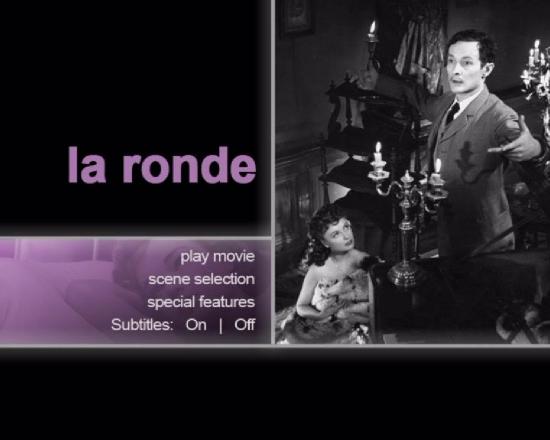
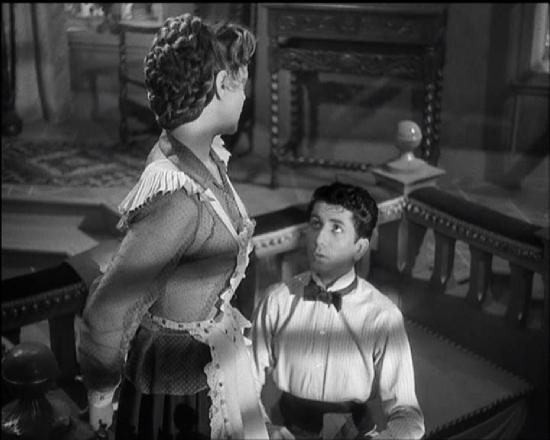
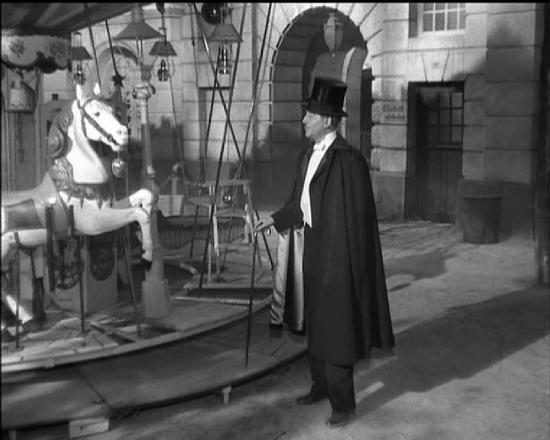
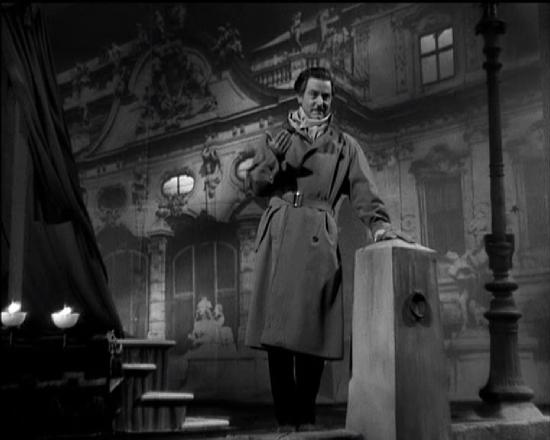
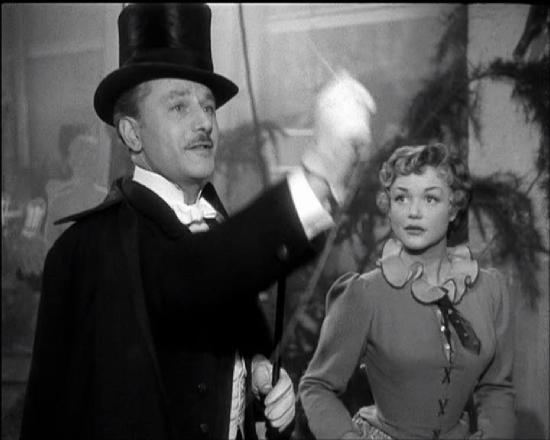
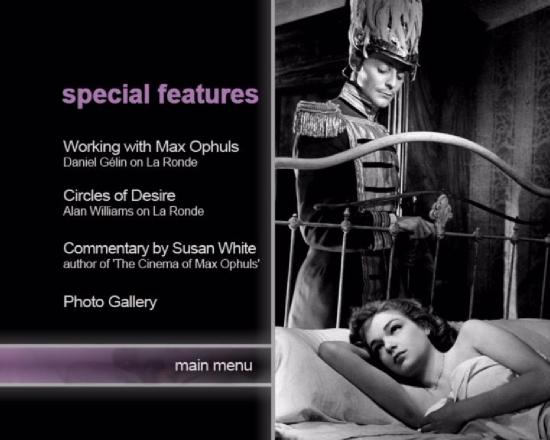
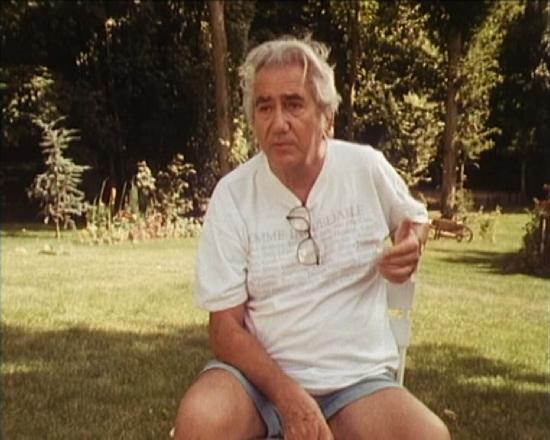
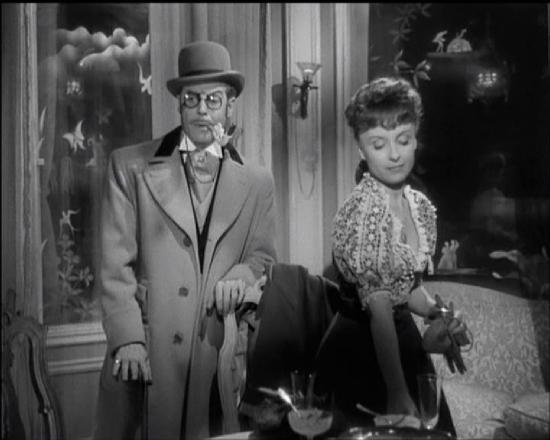
Your Opinions and Comments
Be the first to post a comment!